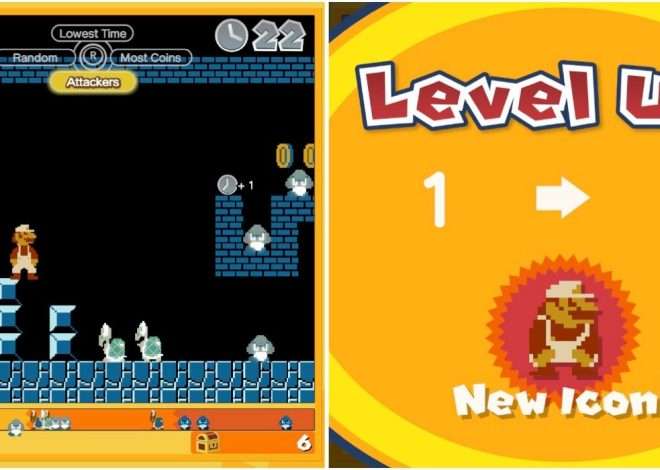Evo Goes Online: Challenges and Opportunities in the Age of Pandemic
The Evolution Championship Series (Evo), a globally renowned fighting game tournament, has announced a significant shift in its format for the upcoming year. Due to the persistent threat of the COVID-19 pandemic and ongoing concerns about large-scale gatherings, Evo will transition to an entirely online competition. This decision, while necessary for the safety of players and attendees, presents a unique set of challenges and opportunities for the fighting game community. The implications are far-reaching, affecting everything from player participation to the overall competitive landscape. This move underscores the enduring impact of the pandemic on the global entertainment industry.
The Impact of the Pandemic on Large-Scale Events
The COVID-19 pandemic has irrevocably altered the landscape of large-scale events, including sporting competitions, concerts, and gaming tournaments. The necessity of social distancing and the risk of widespread infection have forced organizers to rethink traditional formats. For events like Evo, which typically draw thousands of attendees from across the globe, the transition to a virtual format was a critical adaptation to ensure the continued viability of the competition. This has been a difficult decision for organizers. It also marks a significant step for the evolution of esports competitions.
Challenges of an Online-Only Format
Moving a high-stakes tournament like Evo online presents considerable hurdles. One major challenge is ensuring fair play and preventing cheating. Maintaining a level playing field in an online environment, where lag and network issues can significantly impact gameplay, requires robust technical infrastructure and rigorous anti-cheat measures. The organizers must address this. The integrity of the competition is paramount.
Another significant concern is the potential for reduced participation. While online tournaments offer accessibility to a wider range of players, some participants may be deterred by factors such as internet connectivity issues, equipment limitations, or a preference for the in-person experience. These technical obstacles can be hard to overcome.
Furthermore, the atmosphere of an online tournament is inherently different from the electrifying energy of a live event. The lack of a physical audience and the absence of direct interaction with fellow competitors could potentially diminish the competitive spirit for some players. There’s a loss of the sense of community. This is a very real concern.
Technological Innovations and Solutions
To mitigate the challenges of an online-only format, Evo organizers will likely need to invest heavily in advanced technology. This includes robust anti-cheat mechanisms, high-bandwidth servers to minimize lag, and potentially specialized software to monitor gameplay integrity. Innovative solutions are required to maintain a fair and engaging experience. The technology available will directly impact the success of the tournament.
The use of advanced anti-cheat software will be crucial. Such programs must be able to detect and prevent various forms of cheating, including input manipulation and unauthorized modifications of game files. Additionally, the tournament organizers should actively engage with the community to receive feedback and address concerns.
- Improved network infrastructure to minimize lag and ensure smooth gameplay.
- Robust anti-cheat measures to maintain the integrity of the competition.
- Enhanced spectator features to provide a more engaging online viewing experience.
- Dedicated technical support to assist players with connectivity and technical issues.
Opportunities for Growth and Evolution
Despite the challenges, the shift to an online-only format also presents opportunities for growth and innovation. The expanded reach of an online tournament can attract a more diverse and global player base, potentially increasing the overall competitiveness of the event. This accessibility is important and could have a positive effect.
The online format also allows for more flexible scheduling and potentially wider broadcast reach. This can help to increase viewership and engagement with the fighting game community worldwide. The online format could also be utilized for more frequent smaller events. The format can be adapted for the benefit of the participants.
Adapting to the Digital Landscape
Evo’s transition to an online-only format reflects the broader trend of esports and gaming events adapting to the digital landscape. The pandemic has accelerated the adoption of online platforms, pushing the industry to innovate and find new ways to engage audiences and players. This adaptation will shape the future of esports and could lead to a more inclusive and widely accessible competitive environment.
The increased reliance on online platforms also presents opportunities for experimentation with new formats and features. Organizers can incorporate interactive elements, enhanced spectator tools, and innovative ways to engage the online audience. This is a chance to rethink the presentation of the event.
- Increased accessibility for players in remote locations.
- Potential for wider broadcast reach and increased viewership.
- Opportunities to experiment with innovative formats and interactive features.
- The chance to build a stronger global community.
The Future of Evo and Online Competitions
The success of Evo’s online-only tournament will depend on the organizers’ ability to address the challenges and leverage the opportunities presented by this new format. This will require a significant investment in technology, a commitment to fair play, and a focus on creating an engaging and inclusive online experience. The outcome will have implications for future tournaments.
The experience gained from this online event will be invaluable in shaping the future of Evo and other large-scale fighting game competitions. This shift towards digital platforms could lead to a hybrid model in the future, combining the best aspects of online and in-person events. It is vital that lessons are learned from this transition.
Ultimately, the transition to an online-only format underscores the resilience and adaptability of the fighting game community. The event’s organizers, players, and spectators will need to work together to navigate the challenges and create a successful and engaging online experience. The future of competitive gaming is dependent on such adaptability.
The decision to move Evo online is a testament to the evolving nature of esports and the importance of prioritizing safety and accessibility. While challenges remain, the potential for growth and innovation is significant. This is a crucial moment for the entire fighting game ecosystem.
The transition to an entirely online format marks a pivotal moment for Evo and the broader fighting game community. It highlights the resilience and adaptability of the competitive gaming scene and paves the way for a future of innovative and accessible online tournaments. The experience will undoubtedly shape future events and the broader esports landscape. It is a significant turning point.



